Home>diy>Building & Construction>How To Finance New Home Construction
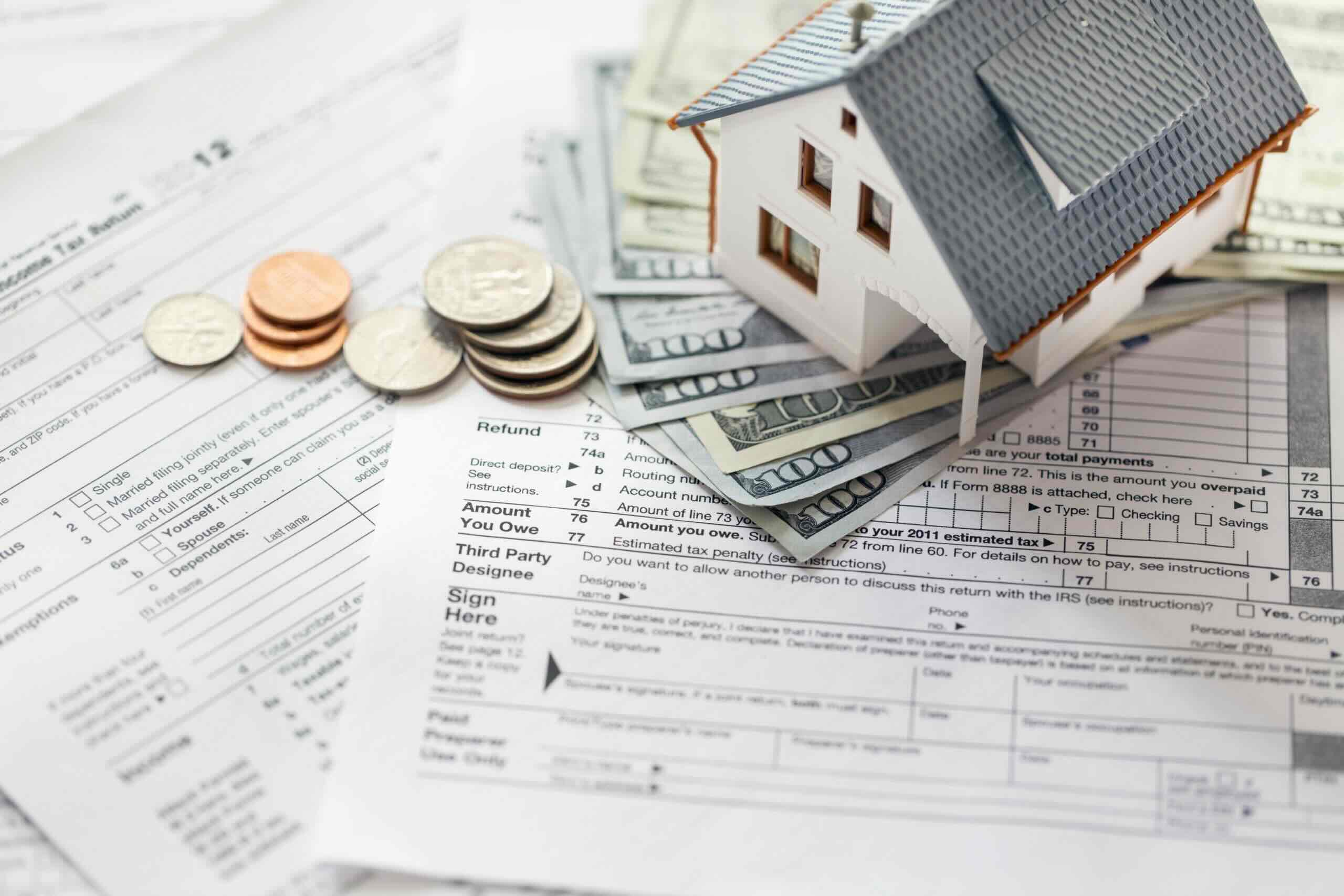

Building & Construction
How To Finance New Home Construction
Modified: January 24, 2024
Learn how to finance your new home construction with our comprehensive guide. Find the best options for building construction financing and make your dream home a reality.
(Many of the links in this article redirect to a specific reviewed product. Your purchase of these products through affiliate links helps to generate commission for Storables.com, at no extra cost. Learn more)
Introduction
Building your dream home from the ground up is an exhilarating and rewarding experience. From selecting the perfect location to designing every aspect of the interior and exterior, new home construction offers endless possibilities. However, one critical aspect that can make or break your project is financing. Finding the right financing option is essential to ensure a smooth and successful construction process.
In this article, we will explore the various financing options available for new home construction. We will discuss the costs associated with building a new home, how to secure a construction loan, and the qualifications necessary for obtaining a mortgage. Additionally, we will delve into government programs that can provide assistance, as well as offer insights on choosing the right builder and managing the construction process.
By the end of this article, you will have a comprehensive understanding of how to finance your new home construction project, enabling you to embark on your dream of building the perfect home.
Key Takeaways:
- When financing new home construction, carefully consider various options such as construction loans, builder financing, and government programs. Understanding costs, securing a construction loan, and qualifying for a mortgage are crucial steps in the process.
- Choosing the right builder, managing the construction process, and navigating the closing process are essential for a successful new home construction project. Effective communication, thorough planning, and professional guidance are key to achieving your dream home.
Read more: How To Finance Home Improvement
Finding the Right Financing Option
When it comes to financing new home construction, there are various options to consider. It is crucial to choose the right financing option that aligns with your specific needs and financial situation. Here are a few popular financing options to explore:
- Construction Loans: A construction loan is a short-term loan designed specifically for financing the construction of a new home. These loans typically have higher interest rates and require a larger down payment compared to traditional mortgages.
- Home Equity Loan or Line of Credit: If you already own a property with available equity, you can consider using a home equity loan or a line of credit to finance your new home construction. This option allows you to borrow against the value of your existing property to fund your construction project.
- Builder Financing: Some reputable builders offer financing options directly to their clients, eliminating the need to secure external financing. These builder financing programs often come with attractive incentives and favorable terms.
- Traditional Mortgage: If you plan to sell your current home and use the proceeds to finance your new home construction, obtaining a traditional mortgage may be a suitable option. Make sure to consult with a mortgage lender to understand the requirements and terms associated with this option.
When choosing the right financing option, consider factors such as interest rates, repayment terms, down payment requirements, and overall affordability. It is advisable to consult with financial professionals, such as mortgage lenders or financial advisors, to help you make an informed decision.
In addition to the financing options mentioned above, it is important to explore any potential grants, subsidies, or government programs that may be available to assist with new home construction. Research and inquire about local and national programs that provide financial support or reduced interest rates specifically for building and construction projects.
Remember, finding the right financing option is a crucial step in ensuring the successful realization of your new home construction project. Take the time to carefully consider your options, seek professional guidance when necessary, and choose the option that best fits your needs and financial goals.
Understanding the Costs of New Home Construction
Embarking on a new home construction project requires a clear understanding of the costs involved. This knowledge will help you plan your budget effectively and avoid any financial surprises along the way. Here are some key costs to consider when building a new home:
- Land Acquisition: The first cost to consider is the acquisition of land. This cost will vary depending on the location, size, and desirability of the land.
- Architectural and Design Fees: Hiring an architect to design your dream home is an essential expense. Architectural and design fees cover the creation of floor plans, blueprints, and any necessary revisions.
- Permits and Inspections: Before construction can begin, you will need to obtain permits from the local authorities. These permits come with associated fees. Additionally, throughout the construction process, there will be various inspections to ensure compliance with building codes and regulations.
- Construction Materials: The cost of construction materials, such as lumber, concrete, roofing, insulation, and plumbing fixtures, can have a significant impact on your overall budget. It is important to research and obtain quotes from different suppliers to find the best prices.
- Labor Costs: Hiring skilled labor for the construction of your new home is unavoidable. The costs will depend on factors such as the size and complexity of the project, as well as local labor rates.
- Utilities and Infrastructure: Connecting your new home to necessary utilities, such as water, electricity, and gas, comes with associated costs. Additionally, if the area lacks proper infrastructure, you may incur expenses for road access, drainage systems, and more.
- Landscaping and Exterior Finishes: Once the construction is complete, you will need to invest in landscaping the surrounding property and adding any desired exterior finishes, such as a driveway, fencing, or a patio.
- Contingency Funds: It is wise to set aside a contingency fund to account for unexpected expenses that may arise during the construction process. This will provide a financial safety net and help prevent any delays or compromises in the project.
It is important to consult with builders, contractors, and other professionals to get accurate estimates of these costs. Take the time to obtain multiple quotes and compare prices to ensure you are getting the best value for your money.
By understanding the various costs associated with new home construction, you can effectively budget for your project and make informed decisions throughout the process. Proper financial planning is essential to ensure a successful and well-executed construction project.
Securing a Construction Loan
Securing a construction loan is an essential step in financing your new home construction project. A construction loan is a short-term loan specifically designed for covering the costs of building a new home. Here are the steps involved in securing a construction loan:
- Create a Detailed Construction Plan: Before applying for a construction loan, you need to have a detailed construction plan in place. This plan should include the floor plans, blueprints, construction timeline, and a comprehensive cost estimate.
- Find a Lender: Research and compare different lenders that offer construction loans. Look for lenders experienced in new home construction and inquire about their loan terms, interest rates, and requirements.
- Submit an Application: Once you have chosen a lender, submit your loan application. Be prepared to provide details about your income, credit history, assets, and project plans.
- Provide Required Documentation: The lender will require various documents to assess your eligibility for a construction loan. This may include tax returns, pay stubs, bank statements, building plans, and contracts with builders and subcontractors.
- Obtain Approval and Loan Terms: After reviewing your application and documentation, the lender will determine if you qualify for a construction loan. If approved, they will provide you with the loan terms, including interest rates, repayment timeline, and any specific requirements.
- Arrange for Loan Disbursements: Unlike traditional mortgages, construction loans are dispersed in stages as the construction progresses. The lender will perform inspections at key milestones and release funds accordingly.
- Monitor Construction Progress: Throughout the construction process, it is important to have regular communication with the lender. They will need updates on the construction progress and may require additional documentation before releasing subsequent loan disbursements.
- Transition to a Mortgage: Once the construction is completed, you will need to transition from the construction loan to a permanent mortgage that will cover the remaining balance. This process, known as loan conversion, usually involves additional documentation and fees.
Securing a construction loan can be a more complex process compared to obtaining a traditional mortgage. It is highly recommended to work with experienced professionals who can guide you through the process and ensure all requirements are met. Additionally, having a reputable builder and a well-organized construction plan can significantly improve your chances of loan approval.
By taking the necessary steps to secure a construction loan, you can obtain the funding needed to bring your dream home to life. Remember to thoroughly research lenders, carefully review loan terms, and stay proactive throughout the construction process to ensure a successful loan experience.
Qualifying for a Mortgage
Once the construction of your new home is complete, you will need to obtain a mortgage to cover the remaining balance and secure long-term financing. Qualifying for a mortgage involves meeting certain criteria set by lenders. Here are some key factors that lenders consider when assessing mortgage eligibility:
- Income and Employment History: Lenders typically look for stable employment and income history. They will evaluate your income stability and verify your employment status.
- Credit Score: Your credit score plays a crucial role in mortgage qualification. Lenders will review your credit history to assess your creditworthiness. A higher credit score demonstrates responsible financial behavior and increases your chances of qualifying for a mortgage with favorable terms.
- Debt-to-Income Ratio: Lenders calculate your debt-to-income (DTI) ratio to determine if you can comfortably afford mortgage payments. They compare your total monthly debt obligations (including the new mortgage payment) to your gross monthly income. A lower DTI ratio indicates better financial stability and improves your likelihood of qualifying for a mortgage.
- Down Payment: The down payment is the initial payment you make towards the purchase price of your home. Lenders typically require a down payment of a certain percentage of the home’s value. A larger down payment can improve your chances of mortgage approval and may also help secure better interest rates.
- Property Appraisal: Lenders will conduct a detailed appraisal of the property to assess its value and ensure it meets their lending standards. The appraisal protects both the lender and the borrower by verifying the fair market value of the property.
- Loan-to-Value Ratio: The loan-to-value (LTV) ratio compares the loan amount to the appraised value of the property. A lower LTV ratio indicates a lower risk for the lender, making it easier to qualify for a mortgage.
- Reserve Funds: Lenders may require you to have reserve funds or cash reserves after closing on the mortgage. This ensures that you have additional funds for unexpected expenses or emergencies.
It is important to review your finances and credit profile before applying for a mortgage. Take steps to improve your credit score, pay off outstanding debts, and save for a sizable down payment. This will increase your chances of qualifying for a mortgage with favorable terms.
Working with a mortgage lender or a loan officer can be extremely beneficial in navigating the mortgage qualification process. They can help you understand specific lender requirements, recommend appropriate mortgage products, and assist with the necessary documentation.
Remember, qualifying for a mortgage is a crucial step in making your new home ownership dream a reality. Ensure you meet the necessary criteria, improve your financial standing where possible, and seek professional guidance to secure the best mortgage option for your situation.
Read more: How To Finance Home Renovations
Considerations for Down Payments
When purchasing a new home, one of the key considerations is the down payment. The down payment is the upfront payment made towards the purchase price of the property. It is important to carefully consider the amount and source of your down payment to ensure a smooth home buying process. Here are some considerations for down payments:
- Minimum Down Payment Requirements: Different mortgage lenders or loan programs may have varying minimum down payment requirements. It is essential to research and understand these requirements to determine the minimum amount you need to put down.
- Establishing a Realistic Budget: Assess your financial situation and set a budget that includes the down payment, closing costs, and other related expenses. This will help you determine how much you can comfortably afford to put down on your new home.
- Saving for a Down Payment: Start saving early to accumulate funds for your down payment. Consider setting up a separate savings account specifically for this purpose and contribute regularly to build up the necessary funds.
- Exploring Down Payment Assistance Programs: There are various down payment assistance programs available, both at the federal and local levels, that offer financial support for homebuyers. Research these programs and see if you qualify for any assistance.
- Mortgage Insurance Considerations: If your down payment is less than 20% of the home’s purchase price, you may be required to pay for mortgage insurance. Take this additional cost into account when determining the amount of your down payment.
- Impact on Mortgage Terms: A larger down payment can potentially result in a lower interest rate and better mortgage terms. By putting more money down, you may reduce your monthly mortgage payments and save on interest over the life of the loan.
- Source of Down Payment Funds: Lenders typically require documentation to verify the source of your down payment funds. Be prepared to provide bank statements and records to demonstrate that the funds are from a legitimate source, such as savings, investments, or gifts from family members.
- Consider Other Financial Goals: It’s important to strike a balance between your down payment amount and your other financial goals. Evaluate your overall financial situation and consider factors such as emergency savings, retirement savings, and other financial priorities.
Remember to consult with a mortgage lender or financial advisor to get personalized advice based on your specific circumstances. They can provide guidance on the down payment options available to you and help you choose the most suitable approach.
By carefully considering the down payment amount and exploring available resources and assistance programs, you can navigate the home buying process with confidence and secure a down payment that aligns with your financial goals.
Consider getting a construction-to-permanent loan, which covers both the construction costs and the mortgage. This can simplify the financing process for building a new home.
Exploring Government Programs
When embarking on a new home construction project, it’s crucial to explore government programs that can provide financial assistance or favorable terms. These programs exist at the federal, state, and local levels to support individuals and families in the home buying and construction process. Here are a few government programs worth exploring:
- Federal Housing Administration (FHA) Loans: The FHA offers loans with low down payment requirements and flexible qualification criteria, making homeownership more accessible. FHA loans are insured by the government, which allows lenders to offer favorable terms for borrowers.
- Department of Veterans Affairs (VA) Loans: VA loans are exclusively available to eligible veterans, active-duty service members, and surviving spouses. These loans require no down payment and typically have competitive interest rates and reduced closing costs.
- USDA Rural Development Loans: The USDA offers loans for individuals and families looking to purchase or build homes in designated rural areas. These loans often come with low or no down payment requirements and favorable interest rates.
- State Housing Finance Agencies: Many states have their own housing finance agencies that offer assistance programs, including down payment assistance, low-interest loans, and mortgage credit certificates. These programs vary by state, so it’s important to research the options available in your specific area.
- Municipal Government Programs: Local government entities, such as cities and counties, may have their own programs to support new home construction. These programs can include grants, tax incentives, and low-interest loans. Check with your local government offices to explore any available options.
- Energy Efficiency Programs: Some government programs focus on promoting energy-efficient construction practices. These programs offer incentives and grants for incorporating energy-saving features into new homes, such as solar panels, energy-efficient appliances, and insulation upgrades. These initiatives not only help the environment but can also save you money on utility bills in the long run.
- Community Development Block Grants (CDBG): CDBG funds are allocated by the Department of Housing and Urban Development (HUD) to local communities for community development projects. Some of these funds can be used for new home construction, particularly in areas with a need for affordable housing.
When exploring government programs, it’s important to thoroughly research each program’s eligibility requirements, restrictions, and application processes. Consult with a mortgage lender or housing counselor who can provide guidance and help you navigate the available options.
Government programs can provide valuable financial support and assistance in making your new home construction project more affordable. Take advantage of these programs to ensure a smooth and successful homebuilding process.
Choosing the Right Builder
Choosing the right builder is one of the most critical decisions you will make when undertaking a new home construction project. The builder you select will have a significant impact on the quality, design, and overall success of your dream home. Here are some key factors to consider when choosing the right builder:
- Experience and Reputation: Look for builders with a proven track record and extensive experience in new home construction. Research their portfolio, read customer reviews, and ask for references from past clients to assess their craftsmanship, reliability, and reputation.
- Licensing and Credentials: Ensure that the builder is licensed, insured, and has all the necessary certifications to operate in your area. This provides legal protection and ensures you are working with a qualified professional.
- Design and Style Compatibility: Review the builder’s previous projects to ensure their design aesthetic aligns with your vision for your new home. Consider their ability to customize and accommodate your specific design preferences.
- Quality of Workmanship: Examine the materials and finishes used by the builder. Visit their completed homes, if possible, to assess the quality of their craftsmanship. Pay attention to details such as construction techniques, durability, and attention to detail.
- Communication and Transparency: Effective communication is essential throughout the construction process. Choose a builder who is responsive, transparent, and keeps you informed at every stage of the project. They should be open to your questions, provide regular updates, and address any concerns promptly.
- Financial Stability: Ensure that the builder is financially stable and has a good reputation with suppliers and subcontractors. A financially stable builder is less likely to encounter delays in construction or issues with obtaining necessary materials.
- Warranty and After-Sales Service: Inquire about the builder’s warranty policies and after-sales service. A reputable builder stands by their work and offers a comprehensive warranty to address any construction defects or issues that may arise after completion.
- Price and Value: While cost is a crucial consideration, it should not be the sole determining factor. Evaluate the builder’s pricing structure in relation to the quality of their work and the value they provide. Beware of significantly low-priced builders as this may indicate subpar construction practices.
- Client Satisfaction: Talk to past clients of the builder to gauge their satisfaction with the construction process and the final result. Ask about their overall experience, any challenges encountered, and whether they would recommend the builder.
Take the time to interview multiple builders, visit their show homes or previous projects, and assess their suitability for your specific needs. Trust your instincts and choose a builder who aligns with your vision and values. Remember, building a home is a significant investment, and selecting the right builder is crucial to achieving your dream home.
A professional and reputable builder will guide you through the entire construction process, ensuring a smooth and successful experience from start to finish.
Managing the Construction Process
Managing the construction process of your new home is an integral part of ensuring a successful and stress-free experience. Effective management involves overseeing the project, staying organized, and maintaining open communication with your builder and the construction team. Here are some tips for managing the construction process:
- Establish Clear Communication: Maintain open and regular communication with your builder and the construction team. Regularly scheduled meetings and clear lines of communication will help ensure that everyone is on the same page and that any concerns or changes can be addressed promptly.
- Document Everything: Keep detailed records of all communication, contract changes, and any decisions made during the construction process. This will help avoid misunderstandings and provide a reference in case of any disputes or conflicts.
- Maintain Regular Site Visits: Visit the construction site regularly to monitor progress and address any potential issues. This will also allow you to stay connected with the project and make any necessary decisions or changes in a timely manner.
- Stay Organized: Keep track of all documentation related to the construction process, including contracts, permits, and receipts. Use a system that works for you, such as digital folders or a physical binder, to ensure everything is easily accessible when needed.
- Be Proactive: Actively participate in the construction process by asking questions, seeking clarification, and providing feedback to the builder. Address any concerns promptly to avoid potential delays or misunderstandings.
- Manage Budget and Payments: Monitor your budget closely and track expenses throughout the construction process. Ensure that payments are made on time and in accordance with the agreed-upon terms.
- Prepare for Unexpected Delays: Construction projects can sometimes encounter unforeseen delays or setbacks. Be prepared for these possibilities and maintain flexibility in your timeline and expectations.
- Address Changes Promptly: If you decide to make changes or additions to the original construction plans, communicate these changes to the builder as soon as possible. This will help avoid potential conflicts or delays down the line.
- Seek Professional Guidance: If you are unfamiliar with managing a construction project, consider hiring a project manager or construction consultant to assist you. They can provide valuable expertise and help ensure that the construction process runs smoothly.
- Celebrate Milestones: Take time to appreciate and celebrate significant milestones throughout the construction process. This will help you stay motivated and excited about the progress being made towards your new home.
Remember, managing the construction process requires active involvement, effective communication, and diligent organization. By taking a proactive approach and staying engaged throughout the journey, you can help ensure that your new home construction project is completed to your satisfaction.
Closing on Your New Home
Closing on your new home is the final step in the home buying process. It involves the legal transfer of ownership from the seller to the buyer. This is an exciting milestone as it signifies the completion of your new home construction project. Here are the key steps involved in closing on your new home:
- Schedule a Closing Date: Work with your builder, real estate agent, and attorney to schedule a closing date that works for all parties involved. This is typically done once the construction is complete, and any necessary inspections and final touches have been conducted.
- Review Closing Documents: Prior to the closing, you will receive a Closing Disclosure and other important documents to review and sign. These documents outline the final terms of the mortgage loan, including the interest rate, closing costs, and any additional fees.
- Conduct a Final Walkthrough: Before the closing, schedule a final walkthrough of the property to ensure that everything is in order and meets your expectations. Check for any remaining construction issues, ensure that all systems are functioning properly, and review any agreed-upon repairs or changes.
- Bring Required Documentation: On the closing day, make sure to bring all necessary documentation, such as government-issued identification, proof of homeowner’s insurance, and any additional items requested by the lender or attorney.
- Review and Sign Closing Documents: During the closing, you will be presented with several legal documents that need to be read and signed. These typically include the mortgage agreement, the deed of trust, and the promissory note. Take the time to carefully review each document and ask any questions you may have.
- Pay Closing Costs: The closing costs, including fees for the loan origination, title insurance, appraisal, and attorney services, need to be paid at this time. Ensure that you have the necessary funds available and be prepared to provide a certified or cashier’s check to cover these expenses.
- Transfer of Ownership: Once all necessary documents have been signed, and the funds have been disbursed, the ownership of the property will be officially transferred to you. You will receive the keys to your new home, and the construction process will be complete.
- Register the Deed: After closing, it is essential to register the deed with the appropriate government office to establish your legal ownership of the property. This step varies by jurisdiction, so consult with your attorney or title company to ensure this is done correctly.
- Celebrate and Enjoy Your New Home: Finally, take a moment to celebrate this significant accomplishment. Move into your new home, start making memories, and enjoy the fruits of your new home construction project.
It is important to have a qualified attorney or closing agent present during the closing process to ensure all legal aspects are handled correctly. They will guide you through the necessary steps and address any concerns or questions that may arise.
Closing on your new home is an exciting and fulfilling moment. By following the necessary steps and working closely with professionals, you can ensure a smooth and successful closing process, allowing you to fully enjoy your new dream home.
Conclusion
Building a new home is a remarkable journey that allows you to bring your dream home to life. Throughout the process, financing plays a vital role in turning your vision into a reality. By understanding the various financing options available, exploring government programs, and making informed decisions, you can navigate the intricacies of new home construction successfully.
When financing your new home construction project, it’s essential to find the right financing option that aligns with your needs and financial situation. Whether it’s a construction loan, home equity loan, or builder financing, consider factors such as interest rates, down payment requirements, and overall affordability.
Understanding the costs associated with building a new home is crucial for effective budget planning. This includes considering expenses like land acquisition, architectural fees, construction materials, labor costs, and more. Researching suppliers, getting multiple quotes, and working closely with your builder will help ensure you stay within budget while maintaining the quality and vision of your dream home.
Securing a construction loan is a necessary step in financing your new home construction. By creating a detailed construction plan, finding a reputable lender, and providing the required documentation, you can obtain the necessary funds to support your project. Transitioning to a mortgage after construction completion requires meeting specific eligibility criteria, such as income, credit score, and debt-to-income ratio.
The down payment is another critical aspect of financing your new home construction. Consider your budget, explore down payment assistance programs, and balance your financial goals when determining the amount you can afford to put down.
Government programs, such as FHA loans, VA loans, and USDA Rural Development loans, offer financial support and favorable terms for homebuyers. Additionally, local and state housing finance agencies and energy efficiency programs provide additional opportunities for assistance and savings.
Choosing the right builder is essential to ensure the quality and success of your new home construction project. Consider factors such as experience, reputation, design compatibility, and communication when selecting a builder. Maintaining open communication, staying organized, and actively managing the construction process will help ensure a smooth and successful project execution.
Finally, closing on your new home brings the journey to a fulfilling conclusion. Reviewing and signing the necessary documents, settling closing costs, and completing a final walkthrough mark the transfer of ownership and the start of a new chapter in your life.
Building your dream home through new home construction requires careful planning, thorough research, and strategic decision-making. By understanding the financing options available, managing costs effectively, and working closely with professionals, you can successfully navigate the process and create a home that truly reflects your vision and aspirations. Enjoy the journey and savor the satisfaction of living in the home of your dreams.
Frequently Asked Questions about How To Finance New Home Construction
Was this page helpful?
At Storables.com, we guarantee accurate and reliable information. Our content, validated by Expert Board Contributors, is crafted following stringent Editorial Policies. We're committed to providing you with well-researched, expert-backed insights for all your informational needs.

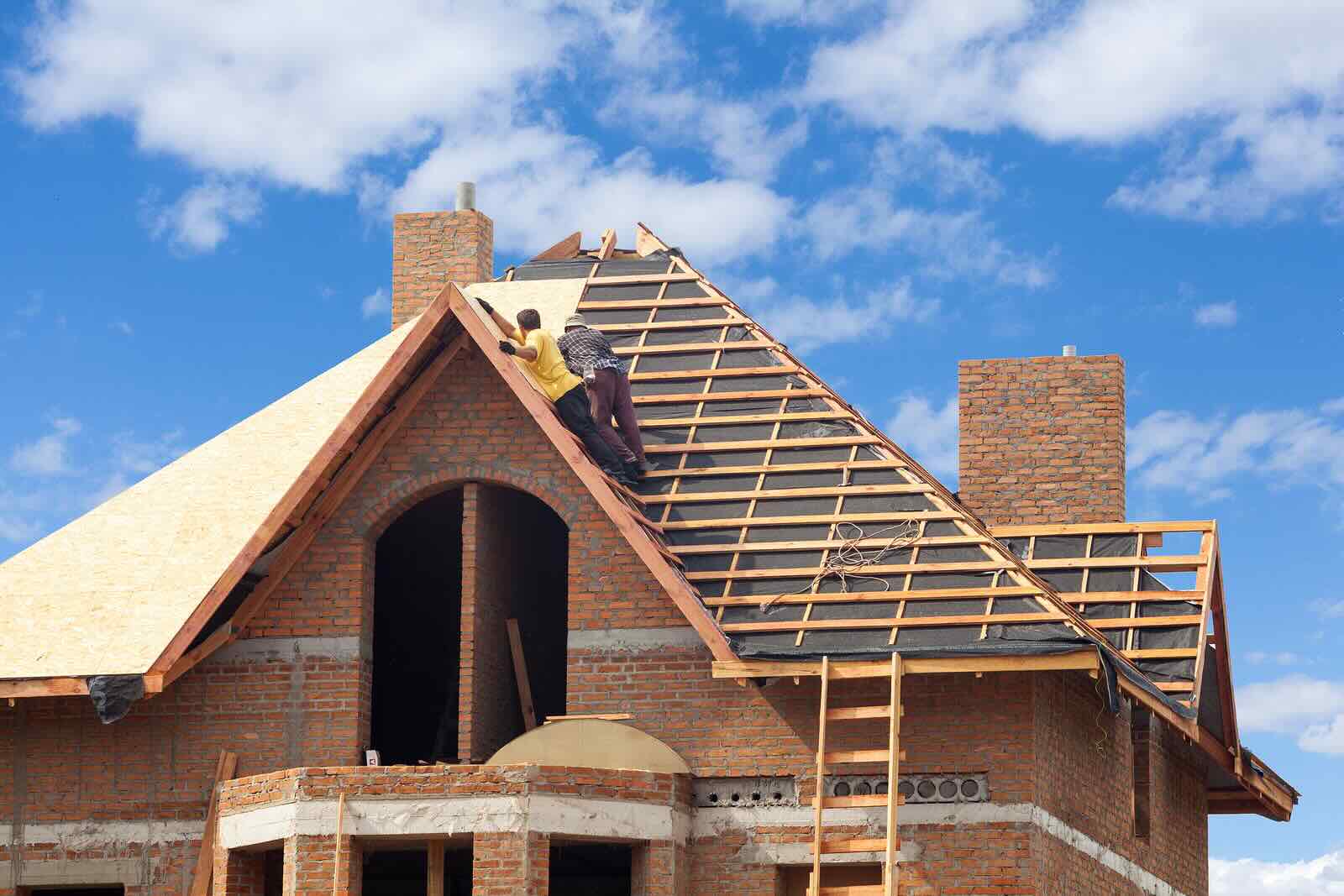

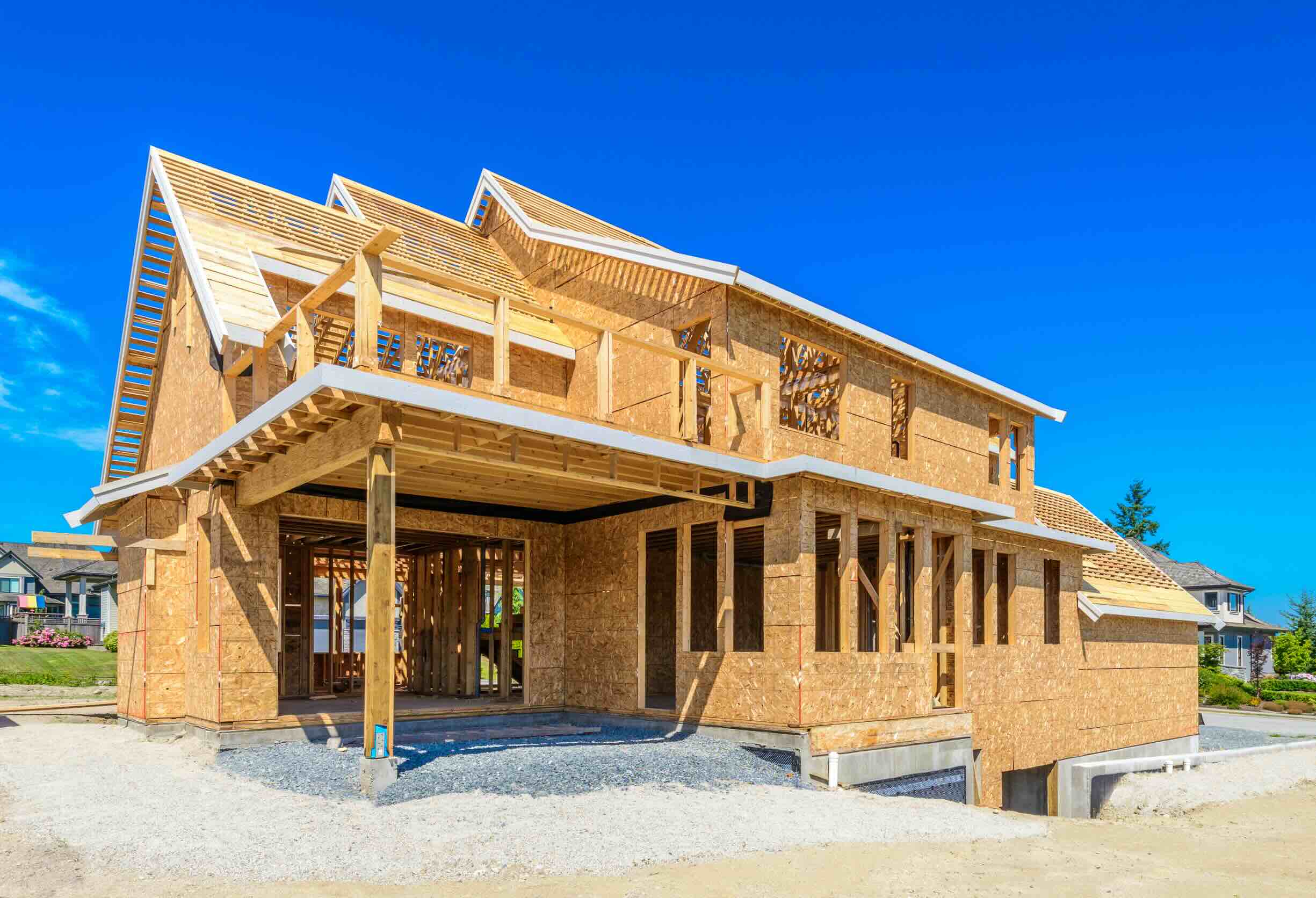

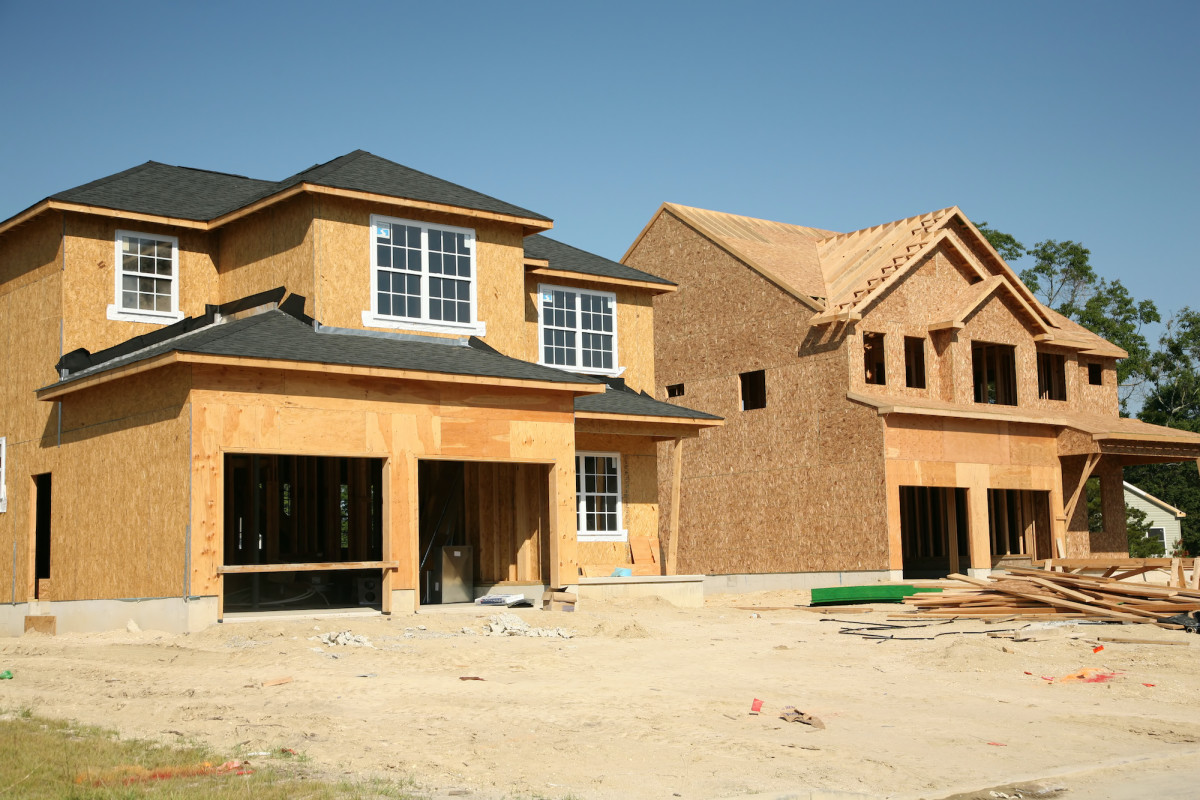



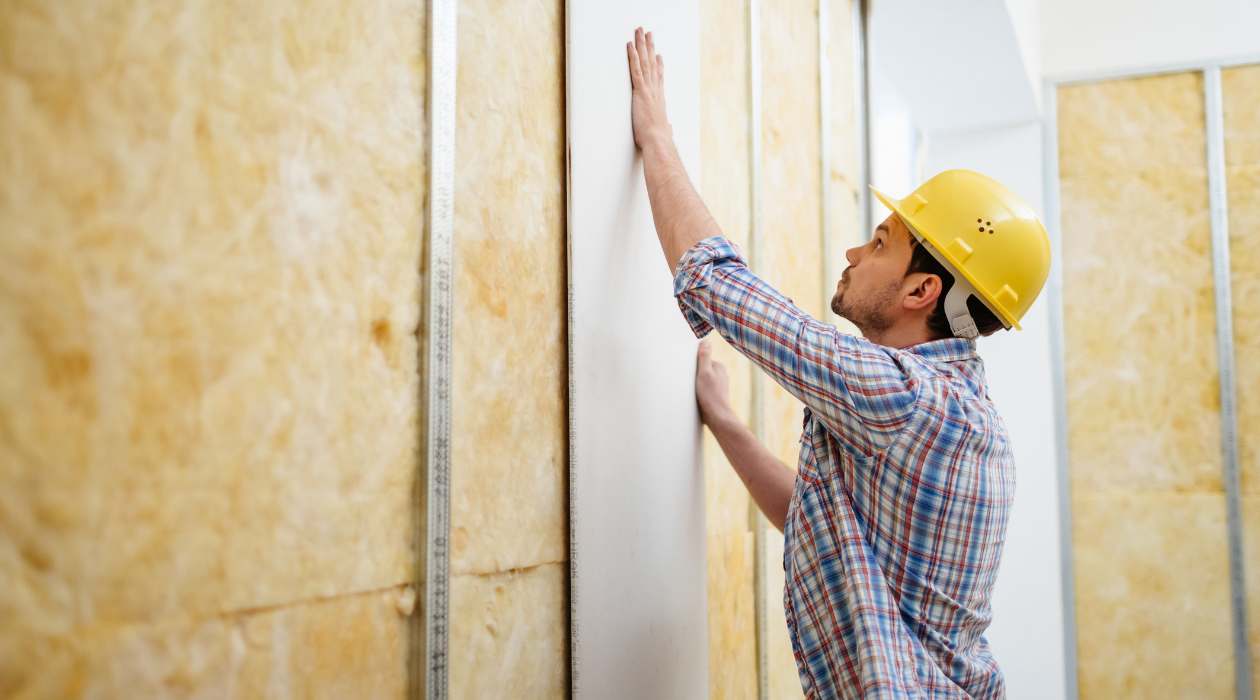

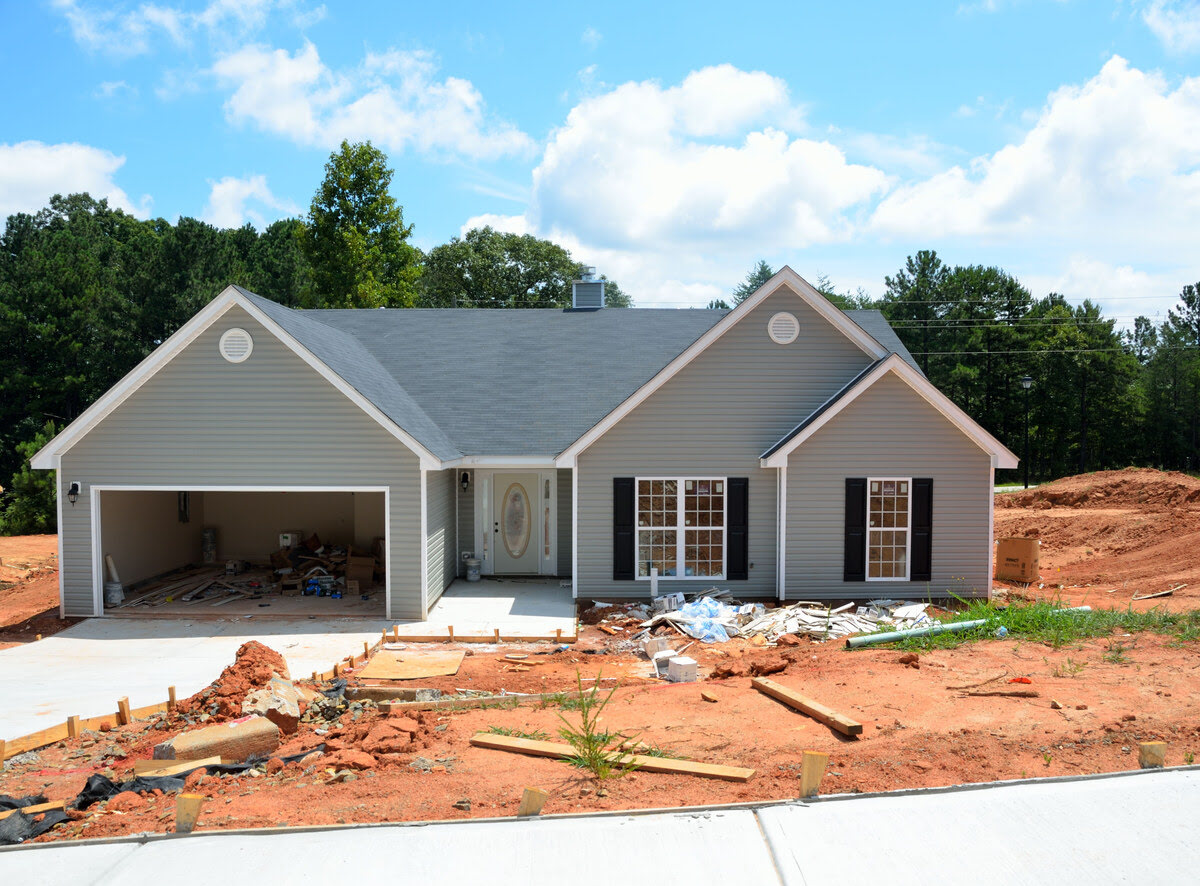
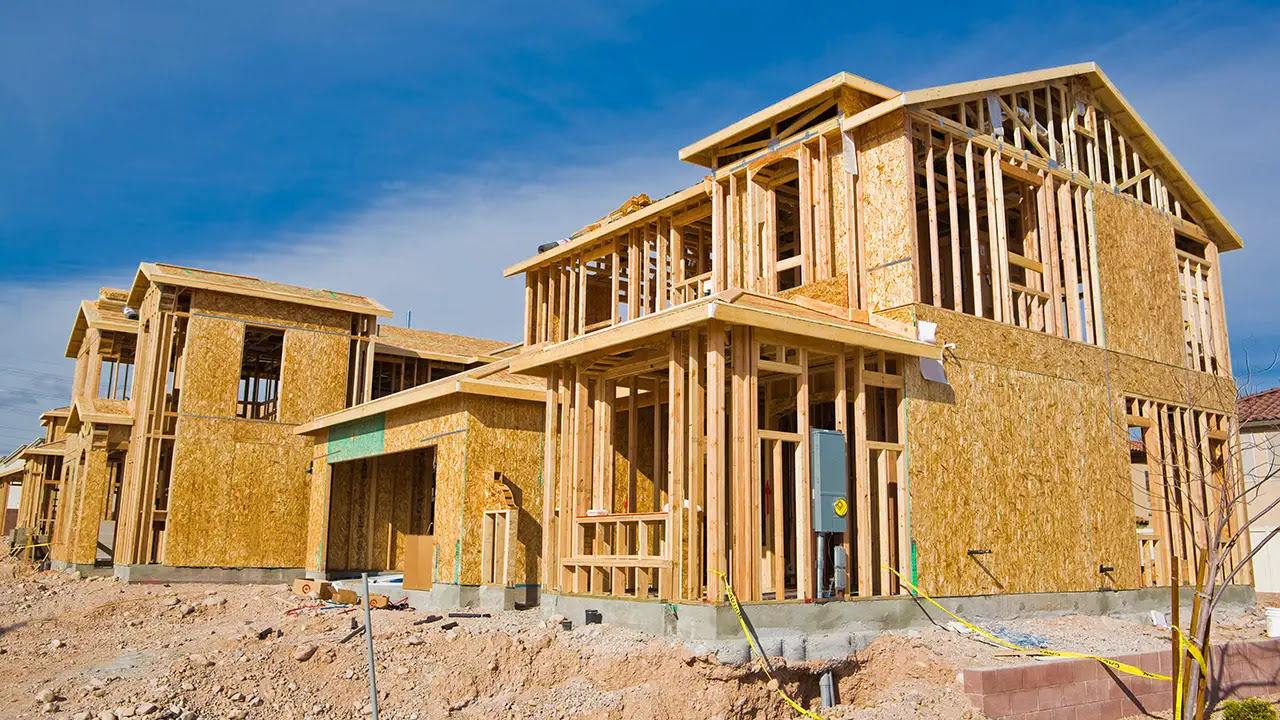

0 thoughts on “How To Finance New Home Construction”